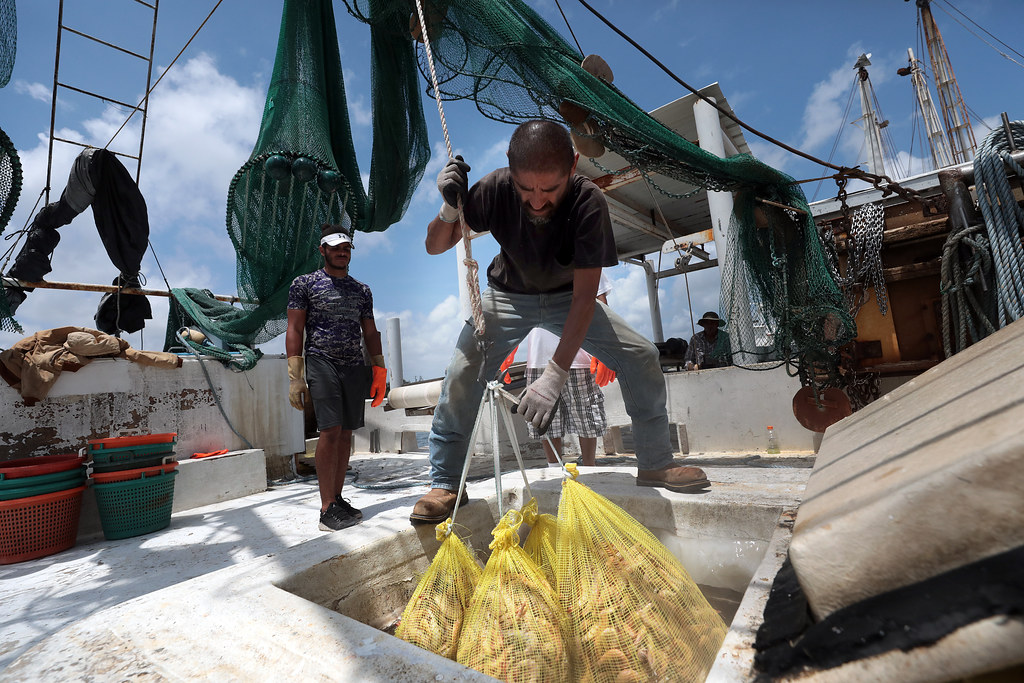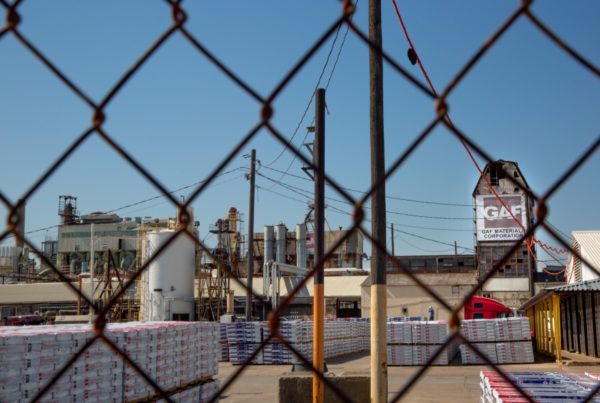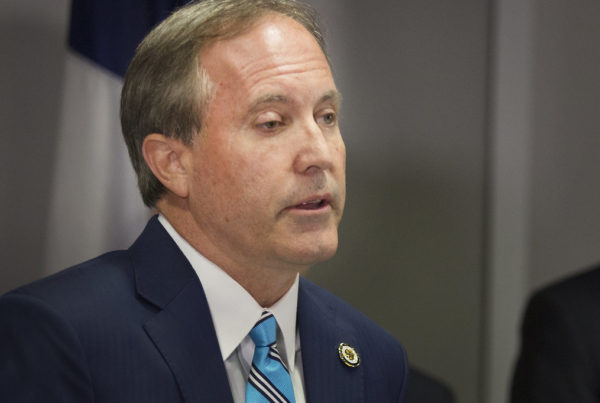As shrimp season officially begins off the Texas Gulf Coast on Friday, the state’s shrimp industry faces several challenges. Not only are shrimp prices low and fuel costs high, but there is also a labor shortage due to immigration regulations.
Antonio Vindell, a freelance reporter based in the Rio Grande Valley, reports in the Rio Grande Guardian that non-agricultural visas are not being issued to Mexican and Nicaraguan citizens who are experienced working on shrimp boats. Instead, citizens from Haiti, Honduras, El Salvador and Guatemala are being prioritized. Vindell joined Texas Standard to talk about the the obstacles facing shrimpers in Texas.
This transcript has been edited lightly for clarity:
Texas Standard: About 300 seasonal workers usually work on these boats – I think they’re called in the industry shrimp headers, if I’m not mistaken. They usually come from south of the border, right?
Antonio Vindell: Yeah. Usually, a boat crew is made up of four people. You know, it is the captain, the rigger and two shrimp headers. And the header’s job is just to take the head of the shrimp that the boat are harvesting. What I know right now, there is a big shortage of labor.
Why is there a shortage? Where do those workers generally come from, and why aren’t there enough of them for the industry right now?
Well, usually the U.S. issues a temporary visa for non-agricultural workers. You know, every year they issue about 300 visas for people to work down here in this part of Texas and the Lower Gulf Coast. And what I understand this time is that because of what’s going on in Central America with this so-called “crisis on the border” now, that is having an impact on the visas that the U.S. has been giving to people from Mexico, mostly, and from Honduras and Nicaragua.
Well, what are officials saying about why they are not issuing the visas?
I talked to this guy who has been working as a liaison between this shrimping industry and the countries. And according to them, they don’t know. They have no answer right now. They’re just saying that they already exhausted their quotas.
What are people in the industry saying about that?
Well, every year they basically go through the same thing. But they said that this time it’s more and more bigger obstacles. The U.S. is trying to give an incentive to people from those four countries [Haiti, Honduras, El Salvador, and Guatemala] to come and work rather than to come as they say “illegally across the border.” The visas they usually give out to the Mexican nationals [who have experience on the shrimp boats] are not being given out because they’re helping people from the other four countries.
What happens if there aren’t enough hands on deck to work these boats? This is an important industry for the Texas Gulf Coast.
Well, what they’re going to do right now, the owners of the shrimp fleet – like there are some people who own anywhere from two to 10 boats – they’re going to consolidate their operations. And it’s going to be a difficult situation.
It sounds like it might be. I would imagine that’s going to make the shrimp harvest lower this year. And I would guess that would also mean increased prices for consumers?
Well, ironically, every time the season is about to begin, the shrimp prices go down, I guess based on the assumption that they’re going to bring a bountiful harvest.
Gulf shrimpers are facing the threat of competition from foreign imports and from farm-raised shrimp. And on top of that, you have the increase in fuel prices. Like right now for diesel, the going rate is $5 a gallon. And to fill a shrimp boat, one of the small ones, takes about $70,000. And if you’re talking about the bigger boats that they have in the upper coast, that takes between $70,000 to $100,000 to fill up a boat.
Wow. So how do you see this affecting the shrimp industry going forward? What are people who work in this industry telling you?
That we’re going to end up paying higher prices for shrimp this year. According to economists, inflation is up by nine point something percent, you know. If you go to a grocery store, you’re paying sometimes twice as much for certain produce that you’re buying. It’s going to happen, the same thing with the shrimp.
You add up all these obstacles, you know, the lack of labor, the high gas prices – what’s this year shaping up to look like compared with past years?
It could be one of the worst ever, I think. You know, they have made some contact with several congressmen, including Vicente Gonzalez. They sent a letter to [Secretary of the Department of Homeland Security] Alejandro Mayorkas. And up till yesterday, there had not been any response whatsoever.
And what they’re asking for is visas for workers so that they can get the job done?
Basically, that’s what it is right now.















